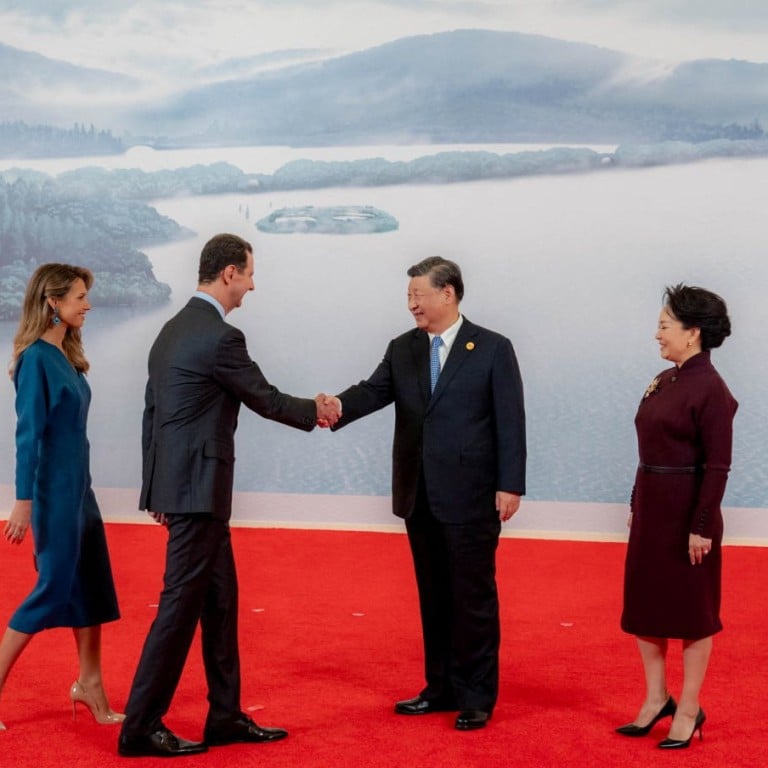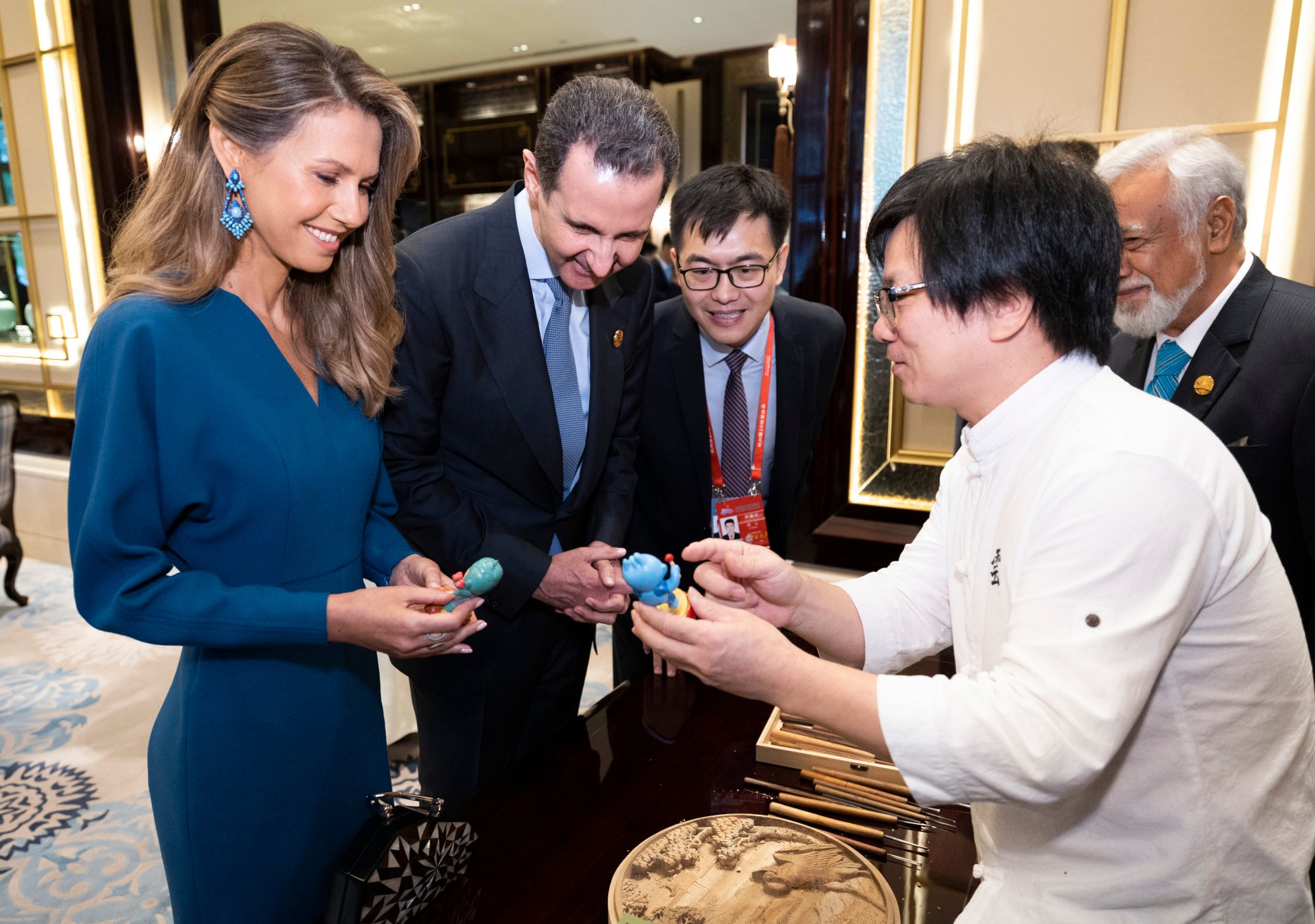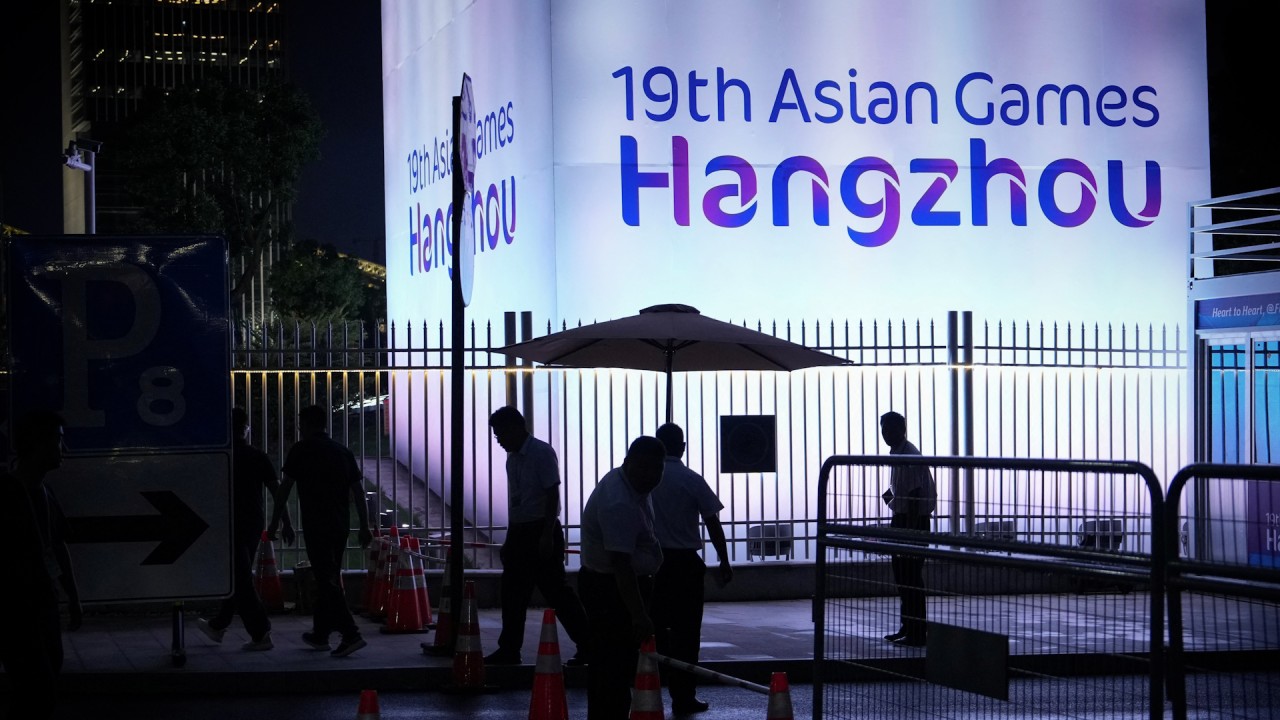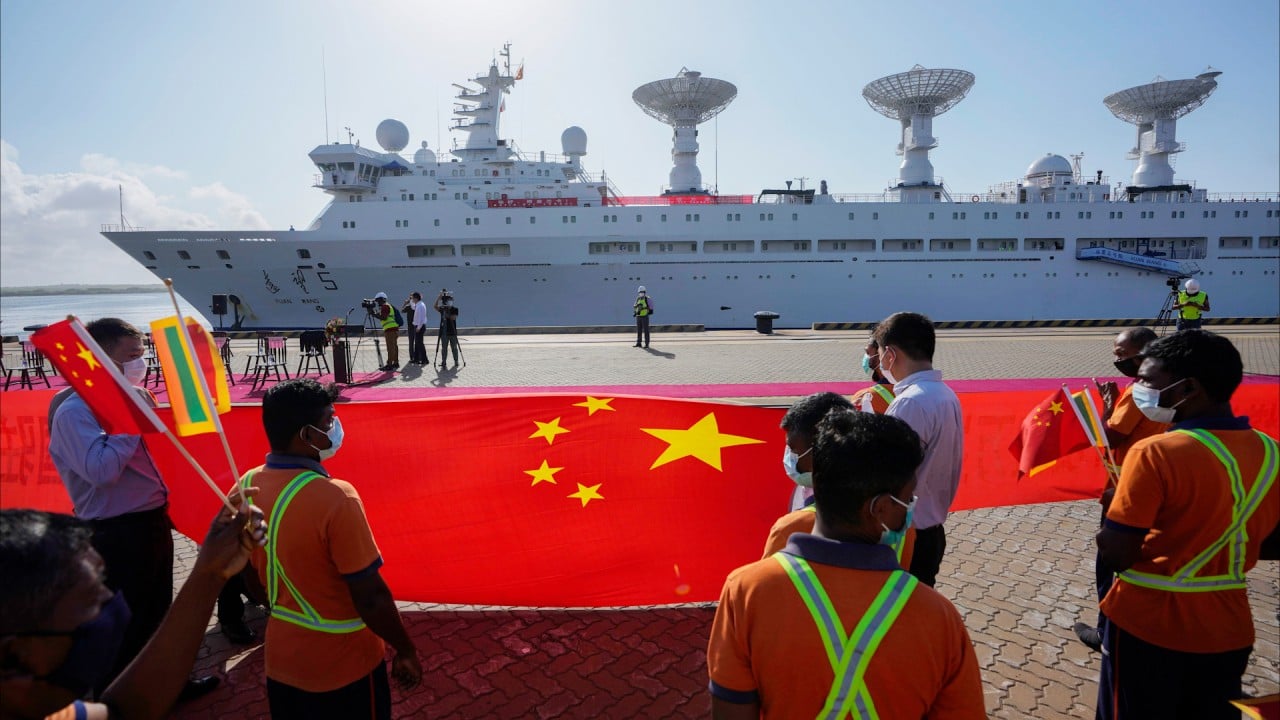
Chinese leader Xi Jinping calls for lifting of ‘illegal’ sanctions on Syria as he welcomes Bashar al-Assad to Asian Games
- Assad is in Hangzhou for the opening of the event as part of his first visit to China since the start of the Syrian civil war
- At a banquet to mark the opening of the event, Xi tells Asian leaders the continent can be an ‘anchor for peace in the world’
Chinese President Xi Jinping criticised the West’s “illegal sanctions” and pledged more support for Syria as he kicked off a string of meetings with foreign counterparts attending the opening of the Asian Games in Hangzhou on Saturday.
Xi said China would help rebuild Syria’s economy and counter domestic unrest as he announced the upgrading of relations to a strategic partnership in a meeting with President Bashar al-Assad.
“China opposes interference by external forces in Syria’s internal affairs ... and urges all relevant countries to lift illegal unilateral sanctions against Syria,” a joint statement published by the Chinese foreign ministry on Friday said.
“China will try its best to provide assistance to Syria, and support the rebuilding work and development of Syria as it recovers.”
The statement also noted the Syrian government applauded China’s “contributions” to fostering “peace and stability” in the Middle East, while China also pledged to help Syria “improve relations with other Arab countries and play a greater role in international and regional affairs”.
At a Saturday lunch banquet, Xi criticised the “cold war mentality and bloc confrontation”, and pledged to make Asia the “anchor for peace in the world.”
“We must use sports to encourage peace and hold on to the principle of achieving a win-win situation based on being kind to our neighbours... We must use sports to encourage unity, and fight challenges together at a historical moment of opportunity,” Xi said.

Other foreign leaders attending on Saturday include the Crown Prince of Kuwait Sheikh Mishal Al-Ahmad Al-Jaber Al-Sabah, East Timor’s Prime Minister Xanana Gusmao of Timor-Leste, Cambodian King Norodom Sihamoni, Nepalese Prime Minister Pushpa Kamal Dahal, South Korean Prime Minister Han Duck-soo, and speaker of the lower house of Malaysia’s parliament Johari bin Abdul.
According to observers, Beijing’s aspirations to play a bigger role in the Middle East are more obvious than ever, and its engagement with Damascus is part of its broader ambitions to influence the region.
Beijing has also expanded its diplomatic efforts to touch upon some of the region’s thorniest issues, such as the Yemen crisis and the Israeli-Palestinian conflict.
Syrian leader expected to seek China’s support in rebuilding economy: analysts
Zeno Leoni, a lecturer at the Lau China Institute at King’s College London, said Beijing aimed for deeper engagement with Damascus to expand its influence.
“China’s involvement is not as strong as that of Russia, but the US involvement has declined nonetheless,” Leoni said.
Xi has also pledged economic support for Syria through the Belt and Road Initiative, Beijing’s global infrastructure strategy, and Leoni added: “Having a close partner in the Mediterranean, where China’s trade travels through, would be reassuring from a strategic viewpoint.”
Bassam Abu Abdallah, head of the Centre for Strategic Studies at Damascus University, added that closer relations between Beijing and Moscow offered Syria an opportunity to engage further with China.
He noted that China’s top diplomat Wang Yi was in Moscow before Assad’s visit to China, which he said was a sign of “strategic change” in ties between Beijing and Damascus.
Leoni added that Syria was allowed to return to the Arab League this year, giving Damascus new impetus to end its decade of isolation. The league suspended Syria in 2011 after Damascus failed to implement a peace plan.
Mandarin learning boom as China extends its soft power in Middle East
According to observers, Syria is eager to boost economic ties amid sanctions from the West as a growing crisis could trigger another wave of social unrest.
The country’s GDP shrank dramatically to only US$11.16 billion in 2020 – just 4.4 per cent of its GDP in 2010, the year before the civil war started – according to the World Bank. The Syrian pound hit a record low against the US dollar this year.
The worsening economic crisis, which Damascus mainly blames on US-led sanctions, has led to persistent protests, mainly in the government-held province of Sweida.
Wang Jin, an associate professor at the Institute of Middle East Studies at China’s Northwest University, said economic pressure was a key factor behind Syria’s engagement with China.
“Assad’s more immediate concern is the economic issue,” he said, noting that in July and August, Syria’s economic data worsened and the rate of currency devaluation accelerated.
“So it needs to be able to get further [with Beijing] to get China’s support and help, especially investment and financial support.”
However, China has kept its stance towards the Syria crisis low profile, unlike Russia and Iran, which have sent direct military aid to help Assad regain control of much of the country.
Abu Abdallah said China was not looking for direct involvement in the crisis.




